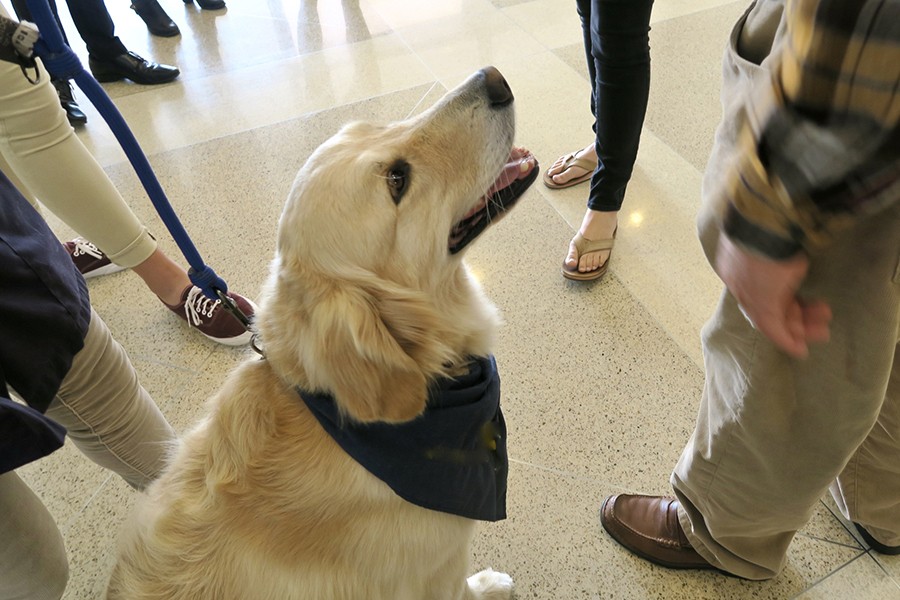2018-12-05

A therapy dog, as a working dog as well as a special companion, provides affection and comfort to people in hospitals, schools, nursing homes, retirement homes, and other healthcare facilities. They need to be trained so that people can contact them and enjoy their company if they need help. Compared to service dogs, therapy dogs provide simple services to people and do not require rigorous training. Many owners train and register their domestic dogs as therapy dogs, so they can always accompany their owners, who suffer from health problems. If you had ever wondered how to register a therapy dog or what is included in the training of a therapy dog, please read on.
What do therapy dogs do?
Therapy dogs, along with their handlers, visit people in special places, especially hospitals, which helps to improve the lives of people in difficult situations. In addition to patients in hospitals, a therapy dog is popular among autistic children. Many cases indicate that children with autism have successfully completed the learning tasks in their primary school when accompanied by therapy dogs. They are gradually freed from depression and anxiety and are starting to make friends as the therapy dogs teach them what trust and friendship are during the healing process. Therapy dogs, however, are generally not allowed to enter businesses where service dogs are allowed. Service dogs, trained to assist with people with disabilities must be wherever their human companions are, including restaurants and airplanes. (The article “What are Service Dogs” gives you more information about a service dog.)
Requirements for a therapy dog
• Trained in obedience. Unlike service dogs, therapy dogs do not need special training, but they must be obedient well-behaved and able to socialise with strangers. For some organisations, these may be the first tasks of a training course for a therapy dog.
• Good temperament. Given the personality traits that are necessary when dealing with people, a therapy dog has to be friendly, confident, patient, and well-behaved rather than aggressive, timid, and hyperactive.
• Age. At least one year old.
• Health report. To vouch for the health of your dog, your vet must have completed a health check within the last 12 months.
• Vaccination. The dog should have been vaccinated against rabies. You may need to submit a vaccination certificate from the vet after the injection.
• Other tests include a stool examination and a check for heartworms within the last 12 months.

Register a therapy dog
Before using your dog as a therapy dog on a voluntary basis, you should first register it online and contact the places your dog will go to (eg a nursing home). People prefer to register their domestic dogs as therapy dogs so that they can accompany their family members or friends (mostly the elderly or patients). To be approved by the staff, your dogs should be able to perform these tasks:
• Meet people and greet them in a friendly way
• Sit down and stay peaceful in a group of people
• Listen to commands, come when called
• Responding to children and unusual situations
• Be not hyperactive when meeting other dogs
• Be well-mannered when entering public facilities
The handler should constantly track and evaluate the therapy dog and call him back in the event of an accident. It is better to follow the rules of each institution, because in some places therapy dogs are not permitted, even though they are registered.